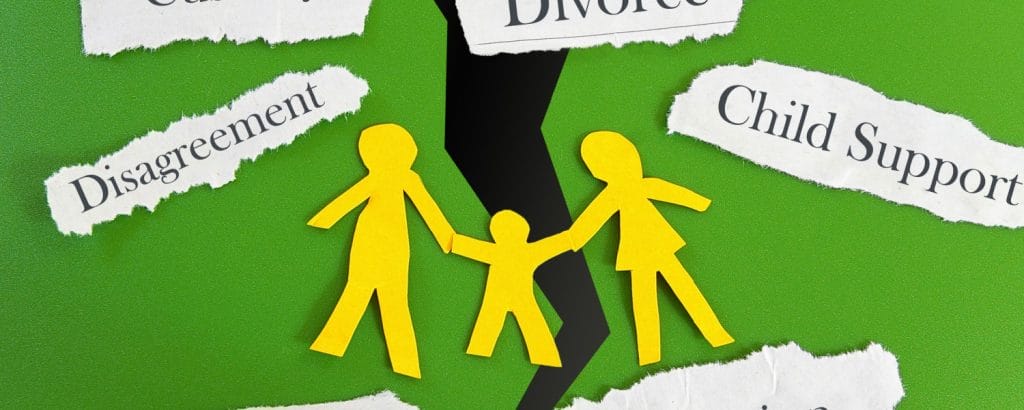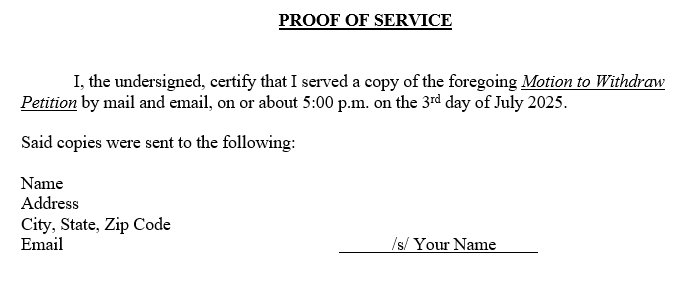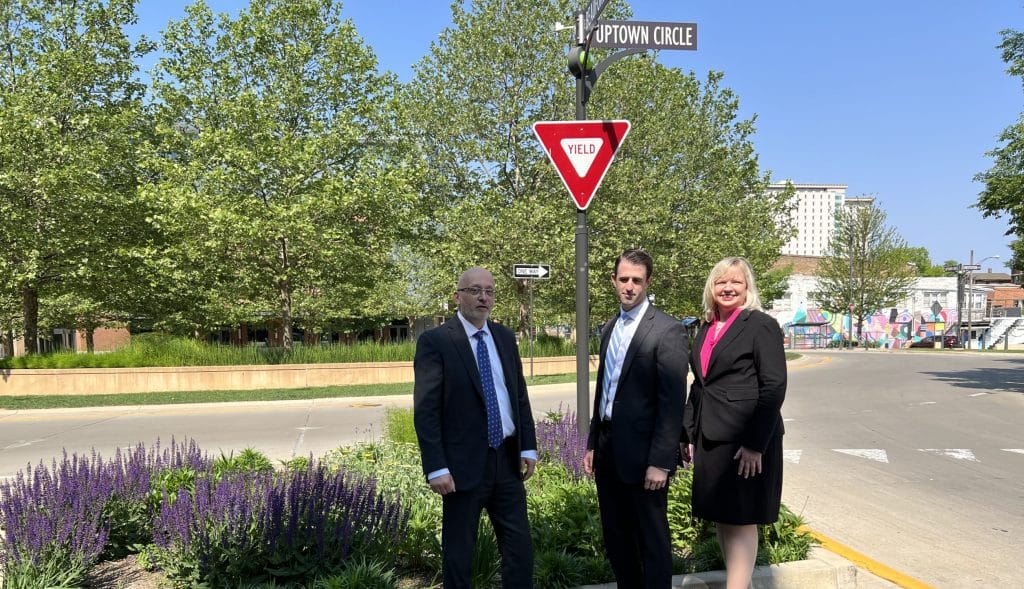Filing for divorce is a significant life decision that can affect you and your family for years. But what happens if you change your mind? Can you stop a divorce after filing? The good news is, in most cases, you can stop a divorce after filing, but the process depends on how far along your case is and the reason for stopping the proceedings. In this article, we will cover how to stop a divorce proceeding after filing, and the possible reasons for doing so.

When Can a Divorce Be Stopped?
There are legal limits to withdrawing divorce cases in Illinois. Luckily the window to withdraw the case is relatively large. Keep reading to learn more.
1. Before Final Judgment
If you and your spouse reconcile before the court issues a final divorce decree, you can typically halt the proceedings. Both parties must agree to dismiss the case, and your attorney can file a motion to withdraw the petition. The court will likely accept this if both parties are in agreement.
Some divorce cases can last months or even years. While you can stop the divorce proceedings at any time during the case, you may still have to pay any court costs, filing fees, and attorney fees. Courts will also want to ensure that one party is not coercing the other party to stop the proceedings. If one side is coercing the other side, as typically happens in cases of abuse, the judge will likely force proceedings to continue.
2. After Final Judgment
Once the court has finalized the divorce, stopping it becomes more complicated. Typically, in Illinois there is a 30 day window after final judgment to vacate the judgment order. If you miss that 30 day window, then you’re legally divorced, and the only way to undo the divorce is to remarry.
You can, however, reopen a divorce case to alter the specific terms of your agreement (such as child support or alimony) as long as there are significant reasons to do so, such as an increase or decrease in income. You cannot, however, undo the divorce.
3. Mediation
Mediation is an alternative to traditional divorce proceedings. It involves a neutral third party mediator that helps both parties, and their respective attorneys if the spouses have retained counsel, to form a custom divorce agreement through open communication in meetings with all parties.
Judges will sometimes temporarily stop divorce proceedings, or order a stop to divorce proceedings, if both parties wish to try mediation instead. Your divorce case will not be closed, but the proceedings can stop so spouses can attempt to fix their issues outside of court.
If you want to learn more about mediation, check out our article titled “A Closer Look at the 5 Steps of Mediation.”
4. Consider Counseling
If you’re unsure about the divorce, consider counseling before finalizing your decision. The judge may stay your case temporarily, meaning the proceedings would stop for a small amount of time, if you and your spouse decide to try counseling or other alternative dispute resolutions. Reconciliation between spouses is possible at any stage before the court’s ruling, and professional guidance may help resolve underlying issues.

When a Divorce Can’t Be Stopped
There are certain circumstances where a divorce proceeding cannot be stopped. As mentioned above a divorce cannot be stopped if final judgment has been entered for more than 30 days, but there are also other reasons.
1. One Party Wants to Continue
If one spouse wants to proceed with the divorce but the other doesn’t, the court will generally allow the divorce to move forward. Divorce doesn’t require mutual consent in most jurisdictions; one party’s desire to proceed is usually sufficient.
There doesn’t necessarily need to be a specific reason for the other party to want to continue. Because Illinois is a no-fault divorce state, the only required reason for divorce is irreconcilable differences between the married partners. If one spouse wants the divorce, there generally isn’t any way to stop the proceedings.
The divorce process can also be put on hold for a short amount of time depending on the circumstances. To learn more about putting divorce on hold, check out our article titled “How Long Can a Divorce Be Put on Hold in Illinois?”
2. Coercion
Judges are always weary of coercion in court cases, especially in family law cases. As mentioned briefly before, the judge will not agree to stop the divorce proceedings if they believe one party is coercing the other party. Because divorce is such a personal matter, and because there are so many people and assets involved, the court will take extra precaution when stopping divorce proceedings.
Sometimes spouses will try to coerce their partner into staying by leveraging specific assets like the family home, money in bank accounts, or even their children. These tactics, often utilized by an abusive spouse, can be powerful and leave the other spouse feeling helpless if they do not concede.
If you believe your spouse is coercing you into agreeing to something against your will or against your best interests, it is imperative that you tell the judge and/or your attorney so the proper steps can be taken to protect you and your interests.

Reasons to Stop Divorce Proceedings
In Illinois there is no requirement to prove why you are filing for divorce or wanting to stop your divorce. There are, however, several reasons why a married couple may want to stop their divorce.
- They want to stay together to help raise their children: Couples with children sometimes make the decision to stay together to support their children until the children reach an age where they do not require the same support.
- They want to try marriage counseling: Sometimes couples decide to try marriage counselling after filing for divorce. After starting the process some couples realize divorce isn’t what they really want, and they decide to try counselling as a way to help them fix their relationship.
- They don’t want to pay for the divorce: Once divorce proceedings are started, many couples realize there are more court costs and fees than they initially realized. They may also realize they need an attorney which can also increase costs. Some couples may choose to stay together and fix their issues to avoid costly divorce proceedings.
- They want to keep certain benefits: Some married couples have 401K accounts, insurance, or other healthcare benefits that are gotten through only one spouse. Whether that spouse receives those benefits from their job or some other means, many couples will decide to stay together to keep these benefits that they may have been paying into for years prior, or were relying on for retirement.
How to Stop Divorce Proceedings
Stopping divorce proceedings is a process that typically involves filing motions, proposed orders, and possible litigation. Here are the steps to stop divorce proceedings:
1. Drafting a Motion to Withdraw Divorce Petition
The first step of stopping divorce proceedings is to draft a motion to withdraw the initial divorce petition. This motion should start with the case caption (the header) and should also state that you wish to withdraw the petition. You do not typically need to provide the reasons for this withdrawal, but it may help speed up the process if those reasons are included in your detailed motion. If you have an attorney, they can help you draft the motion.
You can also find forms, templates, and other helpful resources on your local county courthouse’s website that will help you draft your motion.
2. File Your Motion
Once your motion is drafted, you must file it. If you have an attorney, they will typically do this for you. You can also find helpful links on your local county courthouse’s website to e-filing sites so you can file your motion online from wherever you are. Make sure you save your motion as a .PDF file, then you can search for your case on the e-filing site and file into the case from there.
Motions also typically require a proof of service to show you sent the motion to your spouse. Your proof of service should look something like this:

3. Serve Your Spouse
After your motion has been filed, you should send a copy of your motion to your spouse. If you and your spouse have been communicating, or working together to stop the divorce proceedings, then your spouse will likely already be aware you are entering a motion to withdraw the petition, but you still need to serve them regardless.
Service involves hiring a third party (local sheriff or a process server) to hand deliver your motion to your spouse. If the court simply requires that you send notice of the filing (which is all that is typically required after service of the divorce petition), then simply mailing your motion to your spouse and including the above “proof of service” in your motion will typically suffice.
Some people wonder if it’s possible to get a divorce without your spouse knowing. Check out our article titled “Can You Get Divorced Without Your Spouse Signing the Papers?” to learn more about service and the divorce process.
4. Set a Hearing for Your Motion
Once the motion has been filed, there will typically be another hearing in front of the judge so the judge can make a final order to stop the divorce proceedings. Just because you file your motion, does not mean the judge will grant it. The judge will hear from both parties before coming to a decision. You or your attorney should request a new court date from the circuit clerk. Once a date is set, then you can draft and file a “notice of hearing” with another proof of service. Send a copy of the notice to your spouse before court, then be prepared to explain your motion to the judge.

Conclusion: Can You Stop a Divorce After Filing?
In conclusion, you can stop a divorce after filing, but timing and mutual agreement are key. If you’re having second thoughts, consulting with your attorney early in the process is crucial to ensure the best outcome.
MEET WITH AN ILLINOIS FAMILY LAW ATTORNEY TODAY
The Family Law attorneys at Koth Gregory & Nieminski understand that your family is the top priority, which is why we offer SAME-DAY APPOINTMENTS. If you need a divorce or other family law services, you can schedule your first meeting through our online appointment calendar. We look forward to meeting you.
Disclaimer: This article (Can You Stop a Divorce After Filing?) may contain information that is outdated as Illinois law continuously evolves. Meeting with an experienced family law attorney is the best way to ensure you are receiving the most current information to about Can You Stop a Divorce After Filing?

Published by Dustin Koth on January 20, 2025
